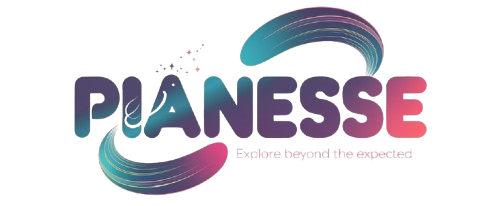Mastering Opte Education: Test Your Knowledge

Opte Education is an innovative approach to learning that emphasizes personalized education tailored to the unique needs of each student. This educational model recognizes that traditional one-size-fits-all methods often fail to address the diverse learning styles, paces, and interests of individual learners. By focusing on the specific strengths and weaknesses of students, Opte Education aims to create a more engaging and effective learning environment.
This approach is particularly beneficial in a world where information is abundant, and the ability to navigate and synthesize knowledge is crucial. At its core, Opte Education integrates technology with pedagogical strategies to enhance the learning experience. It utilizes data analytics to assess student performance and adapt educational content accordingly.
This means that students receive targeted support in areas where they struggle while being challenged in areas where they excel. The goal is not only to improve academic performance but also to foster a love for learning that extends beyond the classroom. By creating a dynamic and responsive educational framework, Opte Education prepares students for the complexities of modern life, equipping them with critical thinking skills and the ability to adapt to new challenges.
Key Takeaways
- Opte Education focuses on personalized learning and understanding individual student needs
- Key concepts and principles include critical thinking, problem-solving, and effective communication
- Test preparation strategies include time management, practice tests, and seeking help when needed
- Sample questions and answers help students familiarize themselves with the format and content of the test
- Effective studying tips include creating a study schedule, staying organized, and taking breaks to avoid burnout
Key Concepts and Principles
Learner-Centered Education
One of the most significant principles is learner-centered education, which prioritizes the needs and preferences of students over traditional teaching methods. This principle encourages educators to act as facilitators rather than mere transmitters of knowledge.
Autonomy and Self-Directed Learning
By fostering an environment where students take an active role in their learning, Opte Education promotes autonomy and self-directed learning.
Integrating Technology in Education
Another essential concept is the integration of technology in education. In an age where digital literacy is paramount, Opte Education leverages various technological tools to enhance learning experiences. This includes online platforms for collaboration, interactive simulations, and adaptive learning software that adjusts content based on individual progress. The use of technology not only makes learning more engaging but also prepares students for a workforce increasingly reliant on digital skills. Furthermore, it allows for real-time feedback, enabling students to track their progress and make necessary adjustments to their study habits.
Test Preparation Strategies

Preparing for tests can often be a daunting task for students, but Opte Education offers strategies that can alleviate some of this stress. One effective strategy is the use of practice tests that mimic the format and content of actual exams. By familiarizing themselves with the types of questions they will encounter, students can build confidence and reduce anxiety.
Additionally, practice tests provide valuable insights into areas where students may need further review, allowing them to focus their study efforts more effectively. Another important strategy is the incorporation of spaced repetition into study routines. This technique involves revisiting material at increasing intervals over time, which has been shown to enhance long-term retention of information.
For instance, instead of cramming all at once before a test, students can schedule short study sessions over several weeks leading up to the exam date. This method not only improves memory retention but also helps students develop a deeper understanding of the material, as they engage with it multiple times in different contexts.
Sample Questions and Answers
| Question | Answer |
|---|---|
| What is the capital of France? | Paris |
| What is the boiling point of water? | 100°C (212°F) |
| Who wrote the play “Hamlet”? | William Shakespeare |
To illustrate how Opte Education can be applied in test preparation, consider a sample question from a mathematics exam: “If a triangle has sides measuring 3 cm, 4 cm, and 5 cm, what type of triangle is it?” The answer would be that it is a right triangle because it satisfies the Pythagorean theorem (3² + 4² = 5²). This type of question tests not only knowledge of geometric properties but also critical thinking skills as students must apply their understanding to identify the correct classification. Another example could be from a history exam: “Discuss the impact of the Industrial Revolution on urbanization.” A well-structured answer would highlight how the Industrial Revolution led to mass migration from rural areas to cities as people sought jobs in factories.
It would also touch upon the social changes that accompanied this shift, such as the rise of a new working class and changes in living conditions. By practicing with such questions, students can refine their analytical skills and learn how to construct coherent arguments based on historical evidence.
Tips for Effective Studying
Effective studying is crucial for academic success, and Opte Education provides several tips to enhance this process. One key tip is to create a structured study schedule that allocates specific times for different subjects or topics. This not only helps students stay organized but also ensures that they dedicate adequate time to each area of study.
Additionally, incorporating active learning techniques can significantly improve retention and understanding. Instead of passively reading or highlighting text, students should engage with the material through discussions, teaching concepts to peers, or applying knowledge in practical scenarios.
For example, when studying biology, a student might conduct simple experiments or create models to visualize complex processes like cellular respiration. These hands-on experiences reinforce learning and make it more memorable.
Common Mistakes to Avoid

Procrastination: A Major Obstacle
One prevalent mistake is procrastination, which can lead to last-minute cramming and increased anxiety. To combat this tendency, students should prioritize time management by setting clear deadlines for completing assignments and studying for exams.
Establishing a Routine for Success
Establishing a routine can help mitigate procrastination and create a sense of accountability. By setting a schedule and sticking to it, students can avoid last-minute cramming and feel more in control of their study process.
The Importance of Self-Care
Another mistake is neglecting self-care during intense study periods. Students may prioritize academics at the expense of their physical and mental well-being, leading to burnout. It is essential to recognize that breaks are vital for maintaining focus and productivity. Incorporating regular exercise, healthy eating habits, and sufficient sleep into study routines can enhance cognitive function and overall performance.
Resources for Further Learning
To support students in their educational journey under the Opte Education model, numerous resources are available for further learning. Online platforms such as Khan Academy offer a wealth of instructional videos and practice exercises across various subjects, allowing students to learn at their own pace. These resources are particularly beneficial for visual learners who may grasp concepts more effectively through multimedia content.
Additionally, educational apps like Quizlet provide tools for creating flashcards and quizzes tailored to specific subjects or topics. This interactive approach encourages active engagement with the material while facilitating spaced repetition techniques mentioned earlier. Furthermore, local libraries often host workshops or study groups that can provide additional support and foster collaborative learning environments among peers.
How to Apply Opte Education in Real Life
Applying the principles of Opte Education extends beyond academic settings; it can significantly impact personal development and professional growth as well. For instance, individuals can adopt a lifelong learning mindset by continuously seeking opportunities for skill enhancement through online courses or workshops relevant to their careers. This proactive approach not only keeps them competitive in the job market but also fosters adaptability in an ever-evolving professional landscape.
Moreover, the emphasis on self-directed learning encourages individuals to pursue interests outside formal education.
By embracing curiosity and taking ownership of their learning journeys, individuals can cultivate resilience and adaptability—qualities essential for navigating both personal and professional challenges in today’s fast-paced world.
FAQs
What is the OPTe Education Test?
The OPTe Education Test is a standardized test designed to assess the knowledge and skills of educators in various subject areas.
Who is required to take the OPTe Education Test?
Educators who are seeking certification or licensure in certain states may be required to take the OPTe Education Test as part of the certification process.
What subjects are covered in the OPTe Education Test?
The OPTe Education Test covers a range of subjects including literacy, mathematics, science, social studies, and other educational topics.
How is the OPTe Education Test administered?
The OPTe Education Test is typically administered at designated testing centers and may also be available in an online format.
What is the format of the OPTe Education Test?
The OPTe Education Test may include multiple-choice questions, essays, and other types of assessment items depending on the subject area being tested.
How can I prepare for the OPTe Education Test?
There are various study materials and resources available to help educators prepare for the OPTe Education Test, including study guides, practice tests, and online courses.







